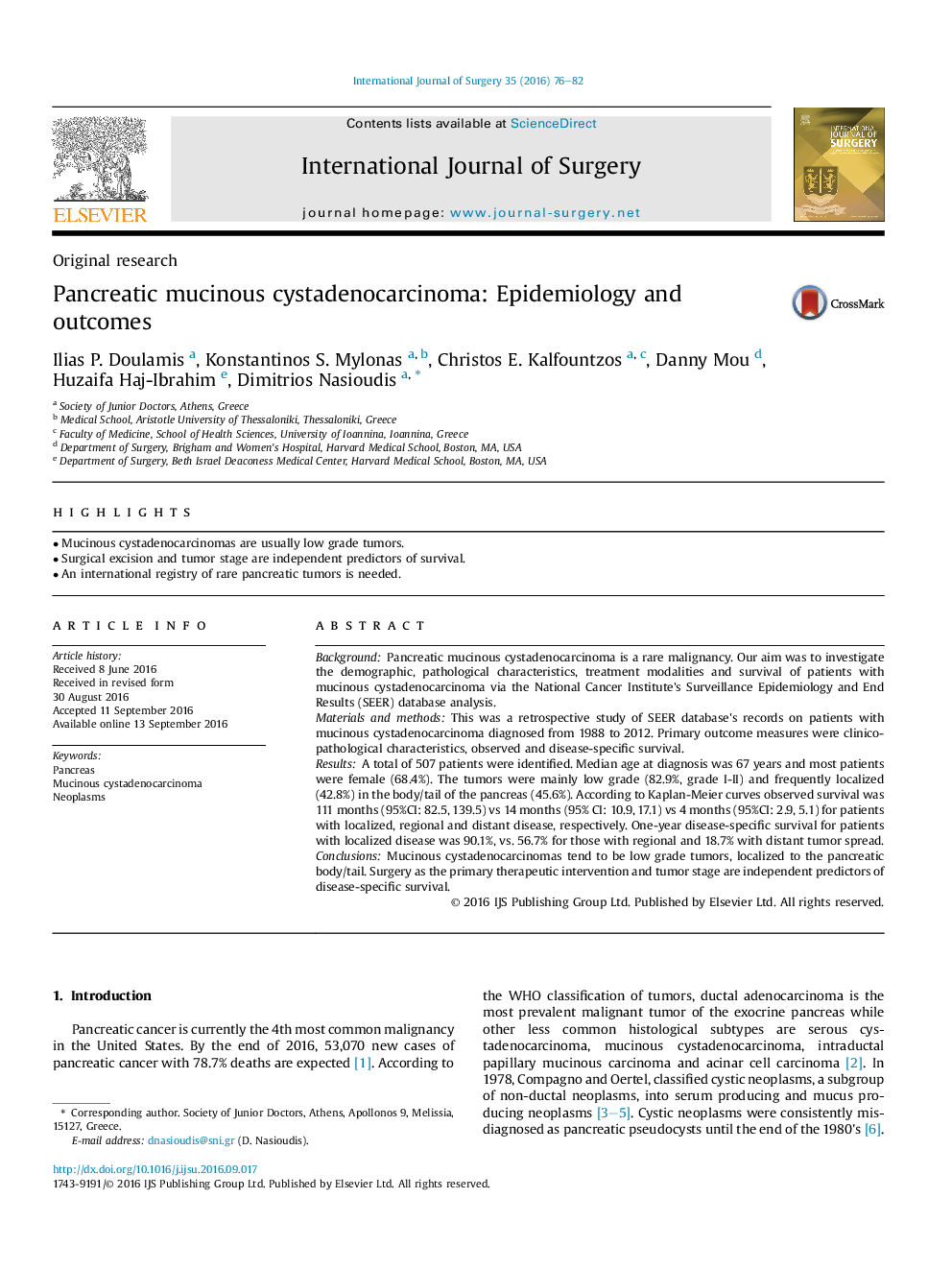| Article ID | Journal | Published Year | Pages | File Type |
|---|---|---|---|---|
| 4285229 | International Journal of Surgery | 2016 | 7 Pages |
•Mucinous cystadenocarcinomas are usually low grade tumors.•Surgical excision and tumor stage are independent predictors of survival.•An international registry of rare pancreatic tumors is needed.
BackgroundPancreatic mucinous cystadenocarcinoma is a rare malignancy. Our aim was to investigate the demographic, pathological characteristics, treatment modalities and survival of patients with mucinous cystadenocarcinoma via the National Cancer Institute's Surveillance Epidemiology and End Results (SEER) database analysis.Materials and methodsThis was a retrospective study of SEER database's records on patients with mucinous cystadenocarcinoma diagnosed from 1988 to 2012. Primary outcome measures were clinico-pathological characteristics, observed and disease-specific survival.ResultsA total of 507 patients were identified. Median age at diagnosis was 67 years and most patients were female (68.4%). The tumors were mainly low grade (82.9%, grade I-II) and frequently localized (42.8%) in the body/tail of the pancreas (45.6%). According to Kaplan-Meier curves observed survival was 111 months (95%CI: 82.5, 139.5) vs 14 months (95% CI: 10.9, 17.1) vs 4 months (95%CI: 2.9, 5.1) for patients with localized, regional and distant disease, respectively. One-year disease-specific survival for patients with localized disease was 90.1%, vs. 56.7% for those with regional and 18.7% with distant tumor spread.ConclusionsMucinous cystadenocarcinomas tend to be low grade tumors, localized to the pancreatic body/tail. Surgery as the primary therapeutic intervention and tumor stage are independent predictors of disease-specific survival.
